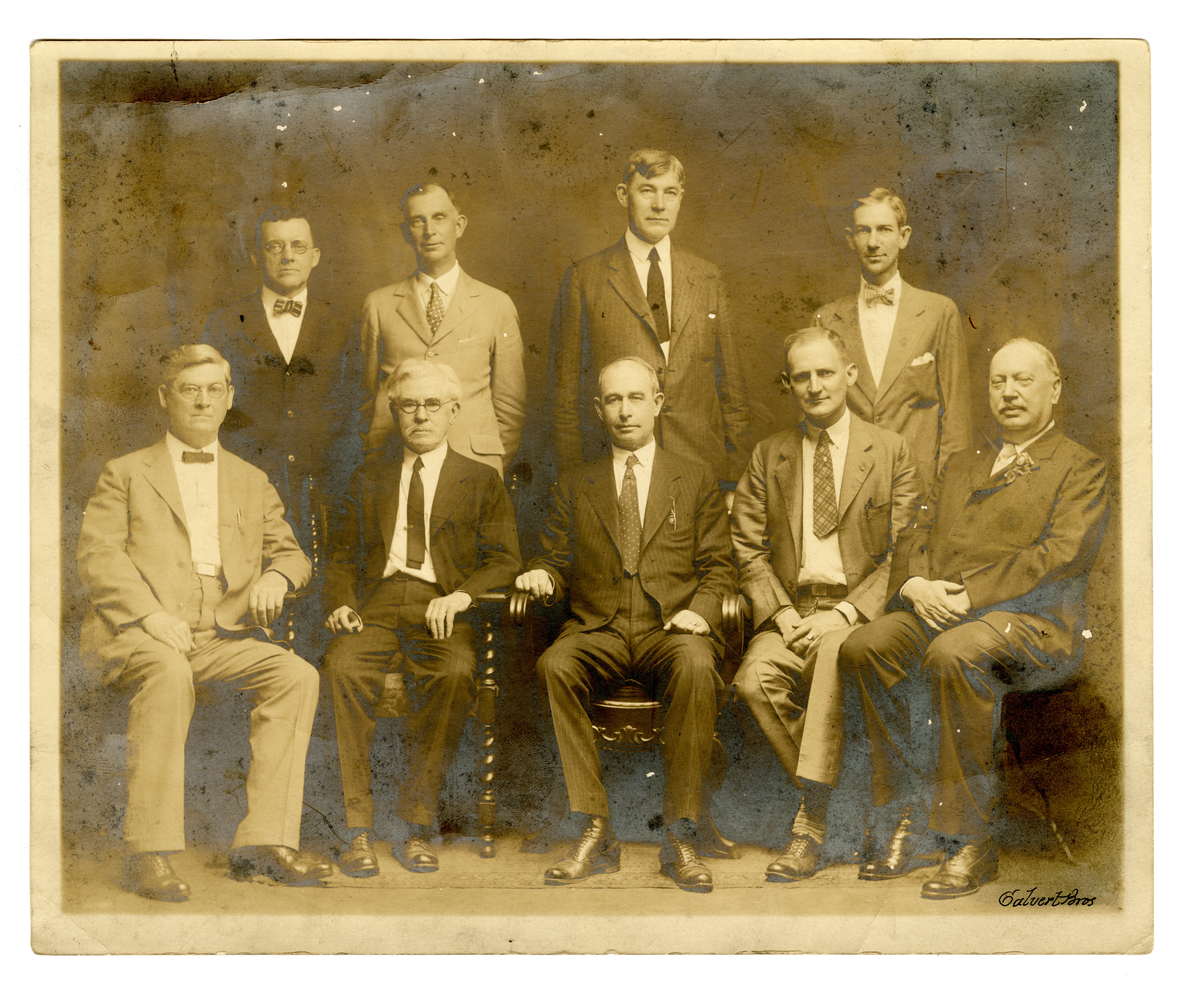April 15, 2025, marked the centennial of Governor Austin Peay’s signing of the act creating the Court of Appeals. This milestone offers the opportunity to look back at the origins of the Court and to recognize some of the notable jurists who have served on it.
The Court of Appeals came into existence on May 1, 1925, through an act to reorganize the Appellate Court System. The legislation, drawn up by a group of prominent lawyers and judges, sought to provide some docket relief to the supreme court, allow intermediate appellate court judges more time to consider cases, and enable the appellate courts to deal with an increasing caseload. In 1937, Court of Appeals Judge Arthur Crownover summed up the necessity of the Court of Appeals: “. . . it was not humanly possible for the five Judges of the Supreme Court to properly and expeditiously dispose of appealed cases resulting on account of the growth of the population and the new developments under the modern business conditions of the State.”
The first Court was composed of nine judges, the five judges from the Court of Civil Appeals and four additional judges commissioned by the Governor, two of them from the Eastern Division and one each from the Middle and Western Divisions. This would produce no more than three judges from each grand division. They were to stand for election in 1926 for an eight-year term.
As the population of Tennessee grew, so did the size of the Court. In 1978, the Court grew to its current 12, with four judges from each grand division. For fiscal year 2023-2024, those judges disposed of 894 appeals.
Many distinguished lawyers have served on the Court. Some of the best known are those that have gone on to serve on the Tennessee Supreme Court, including Hamilton Burnett, John Swepston, Allison Humphreys, Robert Cooper, Chester Chattin, Frank Drowota III, William Koch, Jr., E. Riley Anderson, and Sharon Lee. The current head of the Tennessee judiciary, Chief Justice Holly Kirby, was the first woman to serve on the Court of Appeals when she was appointed in 1995.
Numerous other Court of Appeals judges are known for their work toward equality and civil rights. Judge Richard Dinkins, the first African American member of the Court of Appeals, spent decades working on school desegregation and discrimination cases. In March 2025, the Metro Nashville Board of Education voted to rename a middle school for him. Decades before the appointments of Judge Dinkins and Chief Justice Kirby, Judge Lois Dillard Bejach served on the Court of Appeals. As a state legislator, he authored a bill which would become known as the “Bejach Law,” recognizing the right of married women to keep and control their own property.
Judge John DeWitt, as an attorney, was credited with drafting the act that created the Davidson Counties Charities Commission. He served as its chairman for eight years. He also drafted the indeterminate sentence and parole laws of 1913, which made material changes in Tennessee’s penal system. He served for many years as president of the Tennessee Historical Society.
Judges of the Court of Appeals have served beyond Tennessee as well. Judge Bejach was a lieutenant of field artillery in France during the First World War. Judge Hu C. Anderson presided over the war crimes trial of Alfried Krupp von Bohlen und Halbach and officials of the Krupp armament works in Nuremberg, Germany, following World War II. Judge Winfield B. Hale also participated in the war crimes trials before the Nuremberg Military Tribunals. He was one of three judges that heard the case against high-ranking generals of the German Wehrmacht, known as the High Command Trial.
From legislative experience to military service to rural farming backgrounds, the diverse experiences of these judges have impacted history. They serve as inspiration to members of the current Court.
The article is drawn primarily from a piece written by Court of Appeals Judge Andy Bennett titled, “Helping the Supreme Court.” Special thanks as well to Court of Appeals Judge Neal McBrayer and his law clerk, Laura Hull, researching the Court members and editing the article.

